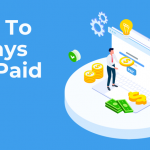Today’s post comes as a special request from our BrainLeaf Engage Facebook Group. The question posed deals with managing the influence that external forces have on your workday and how to manage these interruptions. This one’s for you Nik!
Life Gets In The Way
Specifically, when you’re working from home, there are any number of distractions you’ll have to deal with:
- Kids
- Pets
- People knocking at the door
- People calling or texting
- Work or maintenance you might have had to get done on your home
- That show on Netflix that you just want to keep binging and your couch is beckoning…
All of these things, and so much more, that you have to deal with every single day. They take time to deal with, and despite that you know that your work is more pressing, you can’t always just push them aside.
Personally, it took a long time to figure out how to do this. Trying to go from being a college student to being a professional, I had some serious problems keeping organized and keeping things professional.
One of those problems was those people who were knocking on my door and trying to get me to go out to parties or other various activites.
Organize Your Time: Use a Calendar!
The way that I ultimately got a handle on this issue was by scheduling it. I went into my Google calendar and blocked off every single hour. Every single thing that I had to do.
These days it’s a bit different because:
- My project manager’s booked this time
- My sales people have booked that time
- And my clients have booked all of the time in between
I don’t have time to do anything else.
So it’s easy for me just to say I don’t have time to take that call because I legitimately do not have time to take that call. I’m booked from 9:00 AM until 7:00 or 8:00 PM almost every single day.
When you’re just getting started, though, the best course is to block off a set amount of time and enforce it with yourself: for this two or three or five hour block, whatever it is, this is time to get work done. Find something that could actually work for you, though – if you cannot, for whatever reason, start with a five-hour block, then break it up. Two hours on, one or two off, then two more on.
I also recommend checking your emails first thing in the morning. When you first get in or get up, whatever your setup is, check your email, then do not check it again. Put it aside, go do your work, and then check it again at noon, check it again at 4:00. Some of my friends check it in the morning, check it at night, and that’s it.
Distractions Need Traction
They cannot distract you without it, and only you can give it to them.
So when people call you that you shouldn’t be talking to during work hours, don’t pick up the phone. When your buddy calls to ask what’s going on today (especially if you know that he knows you’re working from home) don’t pick up the phone.
You’re at work. Ask yourself:
- Would you pick up the phone if you were on the clock at somebody else’s business and agree to go get a beer?
- Would you kick your feet up in your cubicle at a corporate job and load up Netflix on your work PC?
Of course not! You’ve got work to do.
So don’t pick up the phone. Don’t answer the text. Once you’ve done your work, then you can go grab a bite to eat, get a beer, or load up Netflix to keep binging. Just treat it like a regular work day.
If you keep doing that, it’s going to become a regular work day. You’re going to have a full load of work to complete. And then you’ll be like me and you’ll wish that maybe more people were calling you so you could take some time off with them.
Oh, look, I’m out of time!





